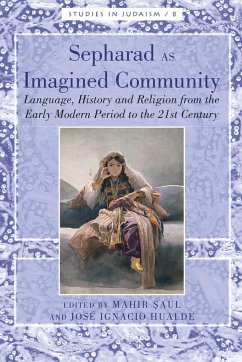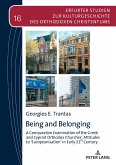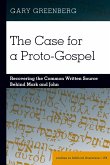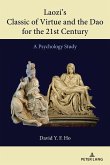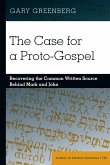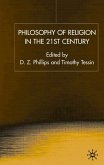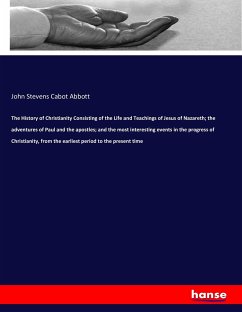Sepharad as Imagined Community
Language, History and Religion from the Early Modern Period to the 21st Century
Herausgegeben:Saul, Mahir; Hualde, José Ignacio
Sepharad as Imagined Community
Language, History and Religion from the Early Modern Period to the 21st Century
Herausgegeben:Saul, Mahir; Hualde, José Ignacio
- Gebundenes Buch
- Merkliste
- Auf die Merkliste
- Bewerten Bewerten
- Teilen
- Produkt teilen
- Produkterinnerung
- Produkterinnerung
This volume is a multidisciplinary contribution to Sephardic studies, including chapters by some of the best-known authorities in the field, interspersed with those of young scholars who have begun making their mark in current research. The text aims to enrich this emerging field through historical linguistic studies as well as investigations based on contemporary movements, recent literary creations, and the issues involved in contemporary revival.
The chapters presented in this collection include a selection of papers originally presented at the symposium "Sepharad as Imagined Community:…mehr
![Being and Belonging Being and Belonging]() Georgios TrantasBeing and Belonging92,65 €
Georgios TrantasBeing and Belonging92,65 €![The Case for a Proto-Gospel The Case for a Proto-Gospel]() Gary GreenbergThe Case for a Proto-Gospel57,80 €
Gary GreenbergThe Case for a Proto-Gospel57,80 €![Laozi¿s Classic of Virtue and the Dao for the 21st Century Laozi¿s Classic of Virtue and the Dao for the 21st Century]() David Y. F. HoLaozi¿s Classic of Virtue and the Dao for the 21st Century41,95 €
David Y. F. HoLaozi¿s Classic of Virtue and the Dao for the 21st Century41,95 €![The Case for a Proto-Gospel The Case for a Proto-Gospel]() Gary GreenbergThe Case for a Proto-Gospel121,80 €
Gary GreenbergThe Case for a Proto-Gospel121,80 €![Philosophy of Religion in the 21st Century Philosophy of Religion in the 21st Century]() D.Z. PhillipsPhilosophy of Religion in the 21st Century74,99 €
D.Z. PhillipsPhilosophy of Religion in the 21st Century74,99 €![The History of Christianity Consisting of the Life and Teachings of Jesus of Nazareth; the adventures of Paul and the apostles; and the most interesting events in the progress of Christianity, from the earliest period to the present time The History of Christianity Consisting of the Life and Teachings of Jesus of Nazareth; the adventures of Paul and the apostles; and the most interesting events in the progress of Christianity, from the earliest period to the present time]() John Stevens Cabot AbbottThe History of Christianity Consisting of the Life and Teachings of Jesus of Nazareth; the adventures of Paul and the apostles; and the most interesting events in the progress of Christianity, from the earliest period to the present time34,90 €
John Stevens Cabot AbbottThe History of Christianity Consisting of the Life and Teachings of Jesus of Nazareth; the adventures of Paul and the apostles; and the most interesting events in the progress of Christianity, from the earliest period to the present time34,90 €![Ama y haz lo que quieras Ama y haz lo que quieras]() Julián Ignacio LópezAma y haz lo que quieras68,45 €
Julián Ignacio LópezAma y haz lo que quieras68,45 €-
-
-
The chapters presented in this collection include a selection of papers originally presented at the symposium "Sepharad as Imagined Community: Language, History and Religion from the Early Modern Period to the 21st Century," as well as pioneering contributions by other key scholars. Two notable additions include innovative explorations of Judeo-Spanish on the Internet.
- Produktdetails
- Studies in Judaism 8
- Verlag: Peter Lang
- Artikelnr. des Verlages: 313137
- Seitenzahl: 332
- Erscheinungstermin: 29. Dezember 2016
- Englisch
- Abmessung: 231mm x 155mm x 22mm
- Gewicht: 560g
- ISBN-13: 9781433131370
- ISBN-10: 1433131374
- Artikelnr.: 45747073
- Herstellerkennzeichnung
- Books on Demand GmbH
- In de Tarpen 42
- 22848 Norderstedt
- info@bod.de
- 040 53433511
- Studies in Judaism 8
- Verlag: Peter Lang
- Artikelnr. des Verlages: 313137
- Seitenzahl: 332
- Erscheinungstermin: 29. Dezember 2016
- Englisch
- Abmessung: 231mm x 155mm x 22mm
- Gewicht: 560g
- ISBN-13: 9781433131370
- ISBN-10: 1433131374
- Artikelnr.: 45747073
- Herstellerkennzeichnung
- Books on Demand GmbH
- In de Tarpen 42
- 22848 Norderstedt
- info@bod.de
- 040 53433511

